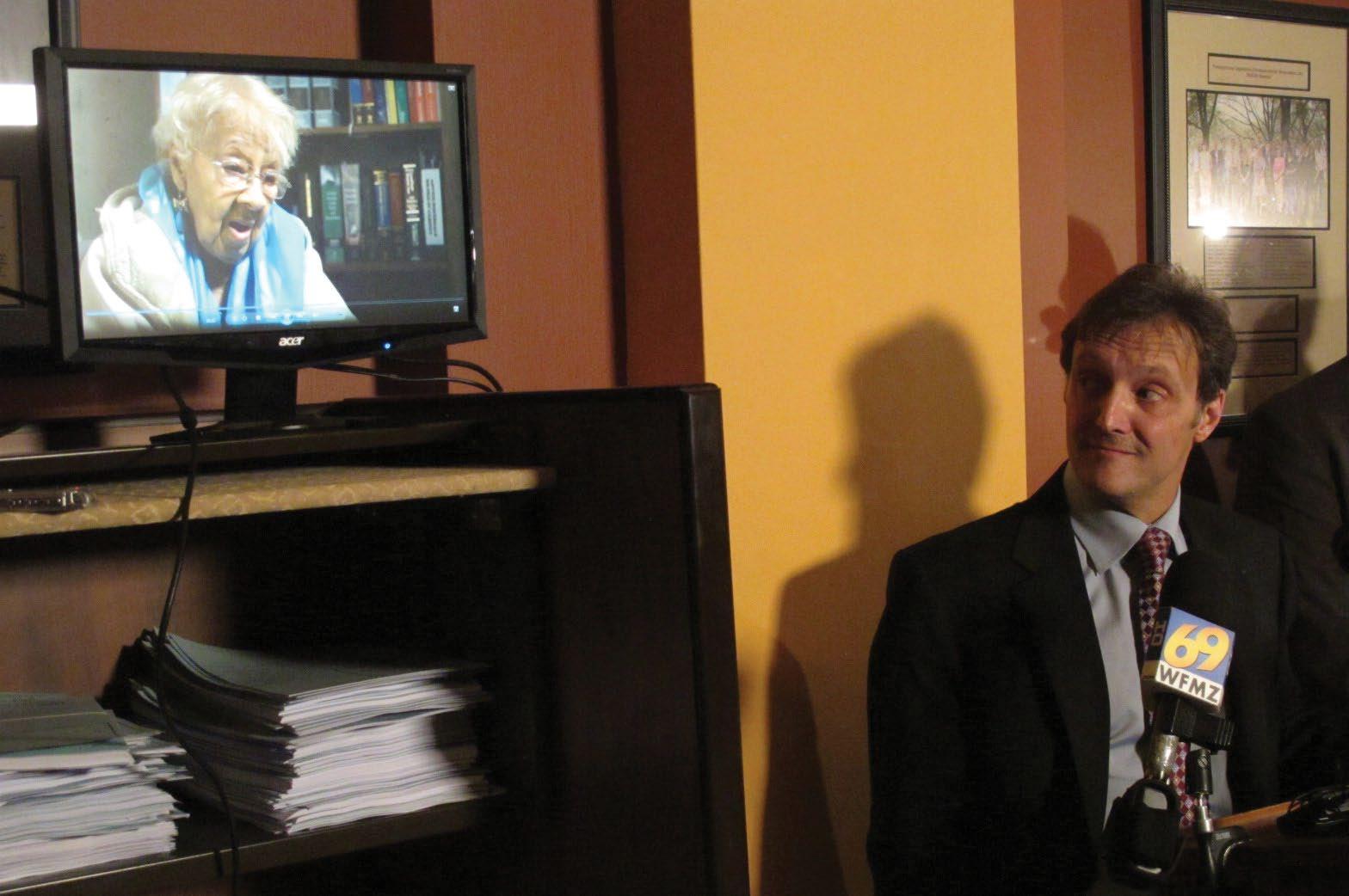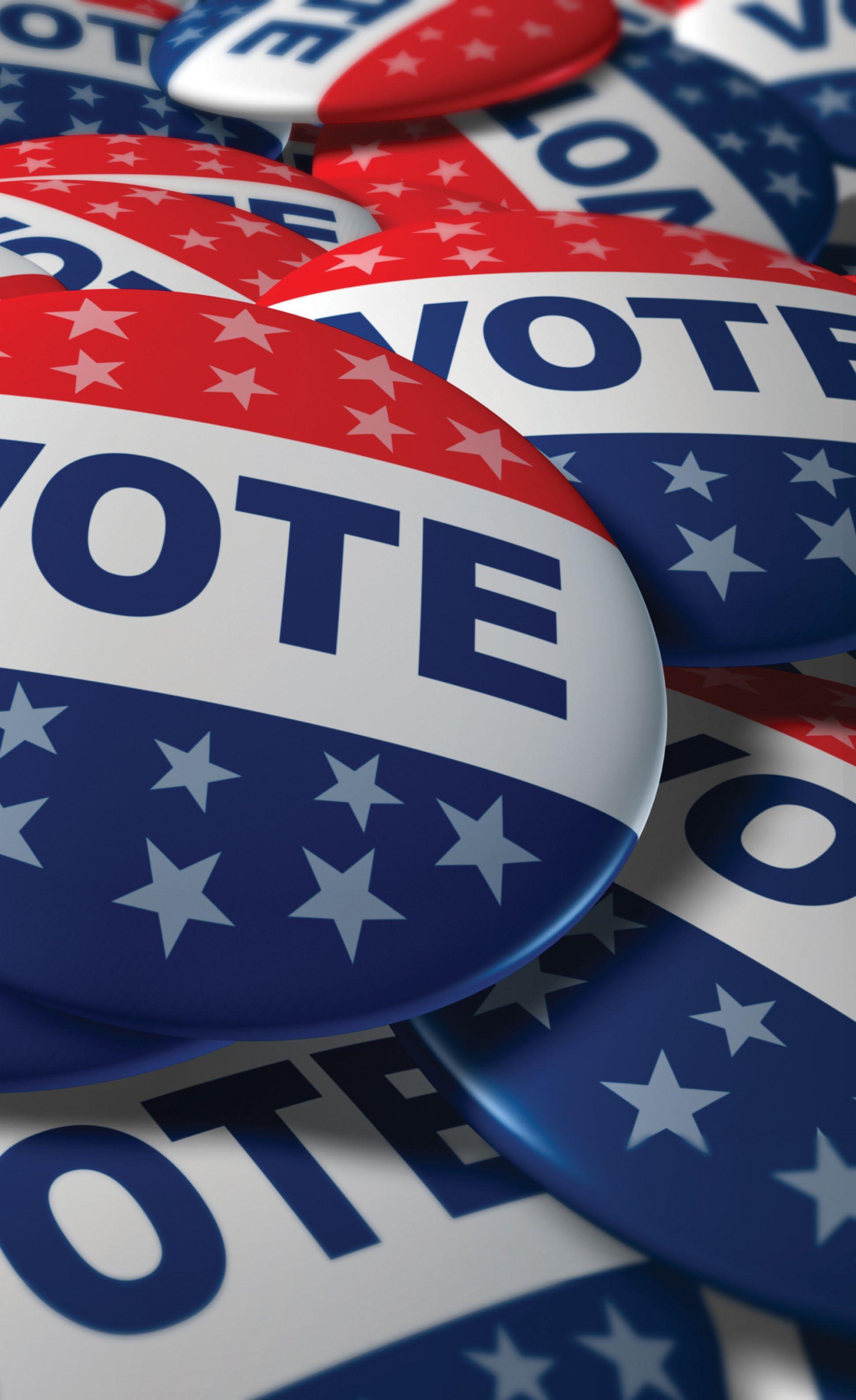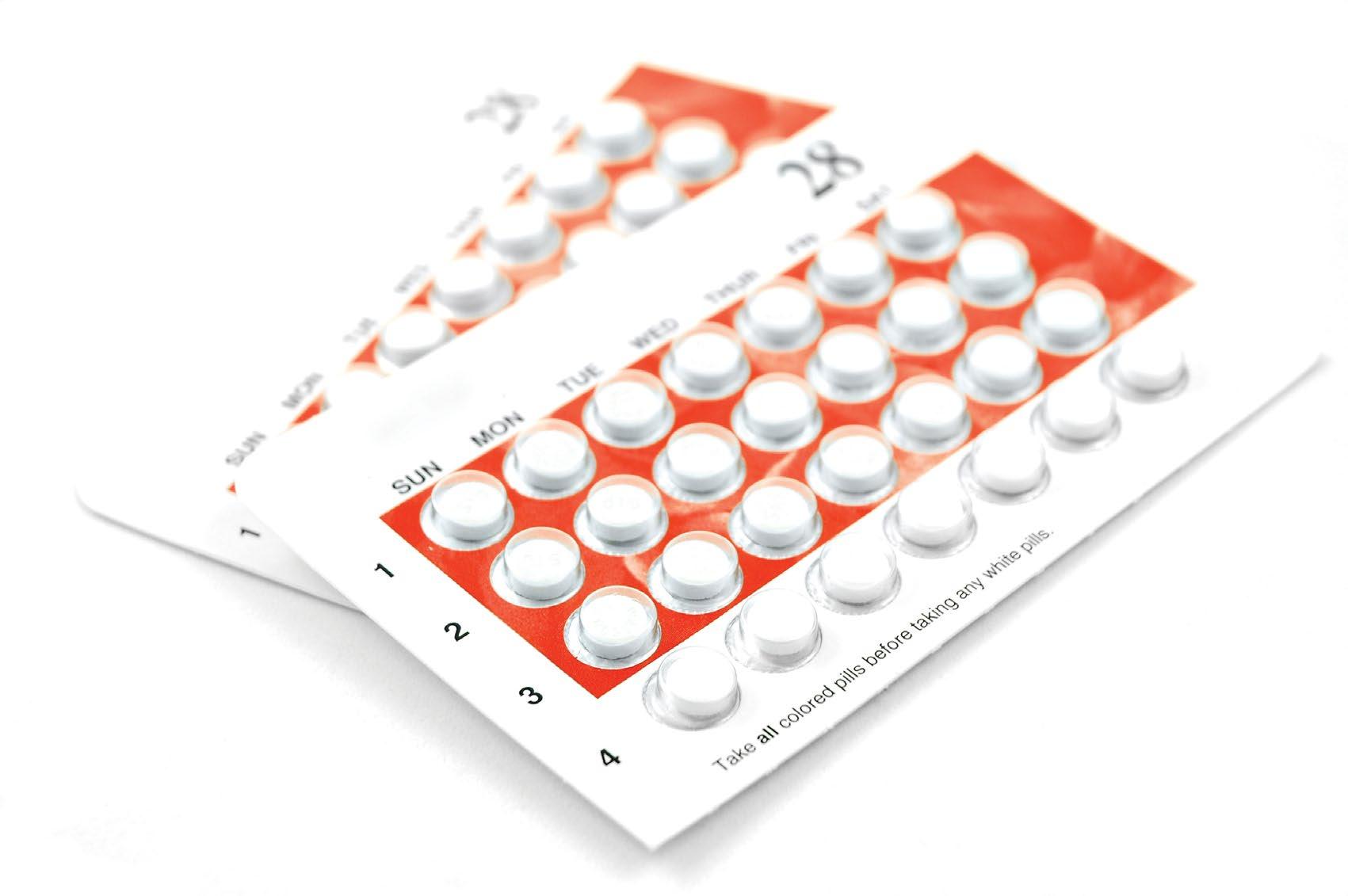
7 minute read
VOTER ID
Voter Fraud vs. Voter Rights Photo ID Laws Raise Questions About Intent, Effect
by Jennifer Horne
Viviette Applewhite has voted in every presidential election since she cast her first ballot for John F. Kennedy in 1960.
But the 93-year-old Philadelphia resident’s streak may end this year. “I’m going to miss this one, though, because I don’t have any ID,” she explained in a video statement aired at a May 1 news conference at the Capitol. That’s because of a new Pennsylvania law that requires her to present photo identification at the polls.
Someone stole Applewhite’s purse—which held her birth certificate and Social Security card—several years ago. She has never had a driver’s license and has been unable to get a replacement copy of her birth certificate.
“It stinks. They are taking our rights away,” she says in the video. Applewhite is the lead plaintiff in a lawsuit seeking to throw out the new law.
Under the legislation signed by Gov. Thomas Corbett in May, voters will be required to present photo identification at the polls in order to vote. Acceptable ID cards include state-issued driver’s licenses and nondriver identification cards and certain other government-issued employee ID cards that include expiration dates. This excludes many student identification cards and those issued by the U.S. Department of Veterans’ Affairs, which do not have expiration dates.
The lawsuit filed by the ACLU and NAACP, of which Applewhite is a lead plaintiff, is seeking an injunction blocking enforcement of the law before the November election. The trial in the case is scheduled for July 25.
Supporters of the legislation argue the bill will protect the integrity of elections by preventing fraudulent voter impersonation, double voting, and voting by illegal immigrants and fictitious voters.
During debate on the Senate floor, Senate Majority Leader Dominic Pileggi described the bill as a “simple, commonsense measure to protect the integrity of the voting process, which is the very foundation of our democracy.”
Secretary of the Commonwealth Carol Aichele also supported the measure to prevent voter fraud.
“Currently, there is no reliable way to verify the identity of voters. We need to know that each voter is who they say they are,” Aichele spokesman Ron Ruman said.
“Under the new law, every eligible voter will be able to cast a ballot, and these votes will not be cancelled by an illegally cast ballot.”
Opponents argue, however, the new requirements will prevent many voters from casting ballots. They also say the voter fraud the measure seeks to prevent is nonexistent.
Sen. Anthony Hardy Williams challenged Republican sponsors of the bill to cite evidence of voter fraud. In the absence of such proof, Williams categorized the legislation as “unnecessary and costly.” He said existing laws require people to identify themselves at the polls, while other laws criminalize voter fraud.
More importantly, he said, the new photo ID requirement will “discourage voter participation at a time when we should be encouraging participation by all citizens.” He described the bill as an “indirect poll tax” because many poor residents who lack identification will face hurdles at the ballot box, including paying for necessary documents to prove their identity.
While the state offers a photo identification card for voting purposes at no cost, residents would have to pay to obtain other necessary documentation such as birth certificates.
According to the Brennan Center for Justice, a legal think tank at the New York University School of Law, voter ID laws disproportionately affect certain groups—including minorities, students, the elderly, the disabled, the poor and women—who are more likely to lack required identification documents.
Supporters of such laws argue photo IDs are required for many common activities, such as cashing a check or flying. The Brennan Center says many people can’t get a government photo ID card because required documentation to get them, like birth certificates, are often difficult or expensive to obtain.
Elisabeth Genn, counsel for the Brennan Center, described voter ID laws as “a solution for a problem that nobody has been able to document.
“Despite aggressively searching for examples, states have been unable to document voter impersonation fraud,” she said. “These laws are unjustifiable and have serious discriminatory effects on the voter rights of millions of Americans.”
Ruman said the Pennsylvania Secretary of Commonwealth’s office is actively working with people lacking the necessary identification to ensure that everyone who is eligible to vote can do so.
“We are committed to making voting as easy as possible within the confines of the new law,” he said. “We have dealt with issues that have come up as best we could. The goal is to have everyone who wants to vote to be able to get ID and vote, but at the same time, to make sure each voter is who they say they are.”
New Restrictions
The Pennsylvania law is just one example of legislation sweeping statehouses the past two years. In addition to voter identification laws, states have considered and passed legislation to make voter registration drives more difficult by ending same-day registration and limiting voter registration drives, reducing early and absentee voting, and making it harder for felons to regain their right to vote.
According to the Brennan Center, 41 states have introduced 176 bills that impose new restrictions on who can vote and how since 2011. In that time, 18 states passed 23 laws and two executive actions to restrict voting. The center estimates these new laws could make it significantly harder for more than 5 million eligible voters to cast ballots in November, more than the margin of victory in two of the last three presidential elections.
The growth in the number of states requiring photo identification at the polls has been significant. Before the 2011 legislative session, two states—Georgia and Indiana—required voters to provide photo identification at the polls. In the past 18 months, however, legislators in 11 states passed such bills, either to strengthen existing voter ID laws by adding the photo ID requirement or as a brand new

WHO LACKS IDS? GOVERNMENT-ISSUED PHOTO ID CARDS » 11 percent of all eligible voters » 25 percent of African-Americans » 15 percent of those earning less than $35,000 a year » 18 percent of young voters » 18 percent of voters over 65 Source: Brennan Center for Justice DOCUMENTATION FOR ID Women who change their names after marriage may lack documentation proving citizenship under their legal name and would require additional documentation such as a marriage certificate. Just 66 percent of women have proof of citizenship with their current legal name.
CHALLENGING ID REQUIREMENT HARRISBURG, Pa.—Viviette Applewhite, 93, a plaintiff in a lawsuit against Pennsylvania's tough new voter identification law, spoke in a video played during a news conference in the Pennsylvania state Capitol May 1. Looking on is one of the lawyers representing her, Witold J. Walczak of the American Civil Liberties Union. © AP Photo/Marc Levy


requirement in states without voter ID laws.
Five governors, however, vetoed the legislation, and in four states, implementation of the legislation is blocked. Pennsylvania is one of the few states whose strict photo ID requirement will be in effect for the November election.
In March, two state appeals courts ruled the Wisconsin law is unconstitutional because it abridged the right to vote. The Wisconsin Department of Justice appealed both rulings, but the state Supreme Court refused to immediately take up the cases, sending them back to the appeals courts.
The U.S. Department of Justice is blocking strict photo ID laws in three Southern states—Mississippi, South Carolina and Texas. Under the provisions of the Voting Rights Act of 1965, any changes in election law made by the jurisdictions covered—largely in the South that failed to protect minority voting rights in the past—must be precleared by the federal government. This can be done through an administrative procedure or by a federal district court in Washington, D.C. Any jurisdiction seeking preclearance must demonstrate that the proposed voting change does not have the purpose or the effect of discriminating based on race.
The U.S. Department of Justice already has denied preclearance to South Carolina and Texas, concluding that neither state had clearly shown the photo ID requirements would not disproportionately disenfranchise registered minority voters. It has yet to rule on applications by Alabama and Mississippi.










